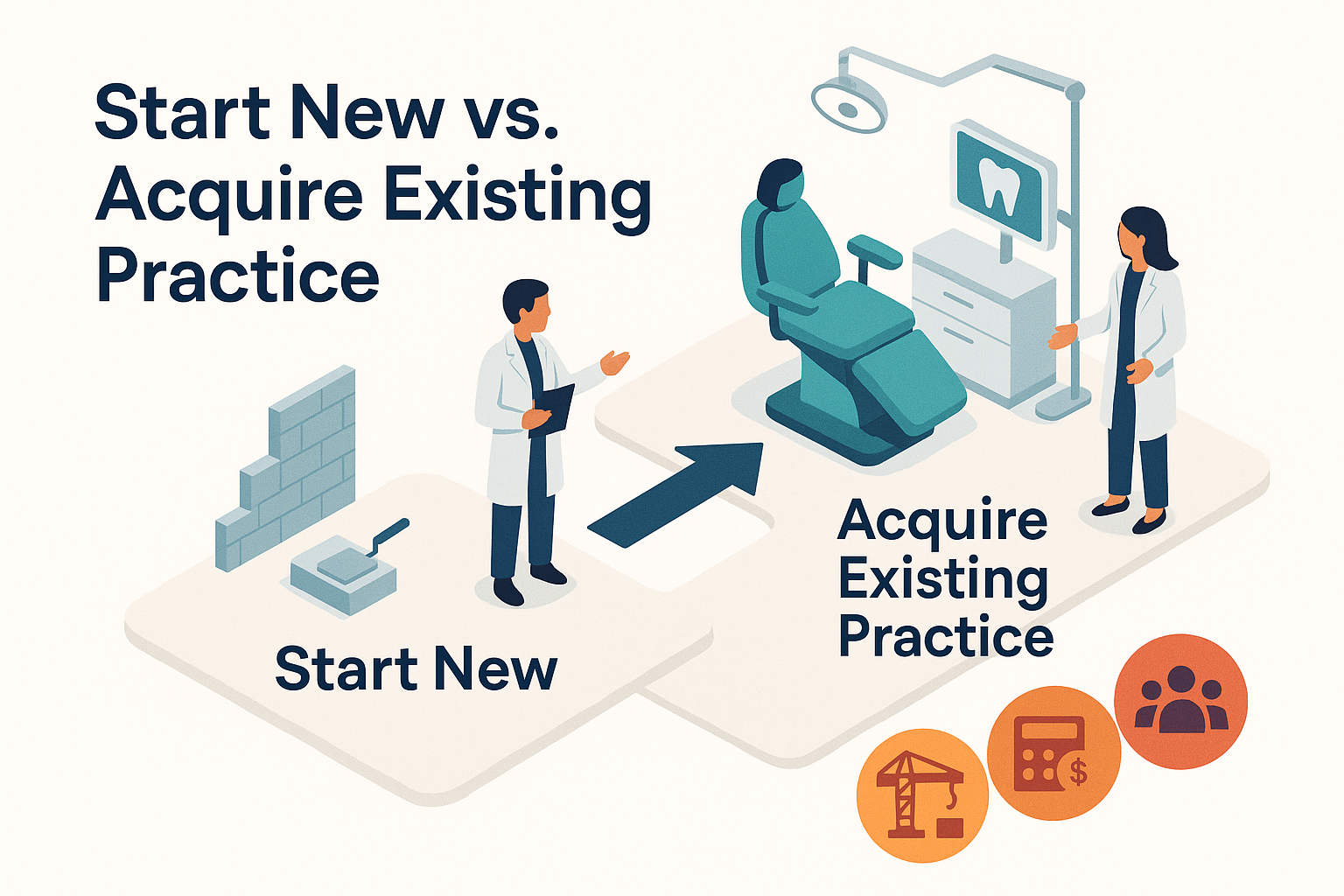Start or Acquire? Navigating Construction, Finances, and Hiring in Your Canadian Dental Startup
Would you rather take on substantial debt or inherit a team with outdated workflows? It’s the dilemma many dentists face early in their careers: begin a startup from scratch or acquire an existing practice. Although buying a clinic can offer immediate cash flow, hidden inefficiencies and culture clashes can pose long-term challenges. Dr. Katie Mathis’ story provides a deep, inspiring look into why building your own practice might be worth the trouble—especially in competitive Canadian dental markets like the Greater Toronto Area (GTA).
Dentist Startups in Canada: Unique Challenges and Opportunities
Starting a dental clinic in the GTA comes with geographic advantages, but local regulations, high startup costs, and intense patient expectations add complexity. Dental professionals must juggle multiple responsibilities, including clinic construction, financial planning, and hiring qualified staff amidst a limited pool of experienced hygienists and assistants.
Let’s unpack these tough decisions, using the insights Dr. Mathis shared as a guiding case study.
Acquiring a Practice Versus Building Your Own

Acquiring an existing practice may appeal to new dentists because of immediate cash flow and reduced marketing effort. However, Dr. Katie Mathis discovered that many for-sale practices came with invisible baggage: overworked teams, outdated charting systems, non-compliant sterilization setups, and fee structures that were out of touch with current standards.
On the other hand, launching a startup gave her the freedom to:
- Make smart design decisions tailored to modern dental workflows
- Select dental equipment like premium handpieces and imaging systems based on efficiency and ergonomics
- Hire a like-minded team aligned with her clinical goals
- Implement billing systems and EMR solutions that met Ontario’s healthcare privacy and storage mandates
Construction and Equipment Planning in the GTA
Construction timelines in Ontario may vary based on municipality, and securing proper zoning and occupancy permits is often underestimated. Contractors need to follow Canadian building codes and dental-specific design guidelines, such as infection control zones and accessibility that meets AODA standards.
Dr. Mathis emphasized controlling every room’s flow during construction. This is critical when choosing where power lines, vacuum systems, and autoclaves should be installed. At this stage, working with reliable suppliers can reduce long-term costs. For instance, EBIKO’s autoclaves help clinics meet Ontario's infection prevention standards efficiently.

Partnering with vendors who offer both affordable pricing and consistent quality ensures a more predictable startup launch. Click to browse the full EBIKO product range supportive of new dental clinics.
Managing Financial Risks Strategically
Startup costs for a dental clinic in the GTA often exceed $500,000 when accounting for construction, equipment, leaseholds, and initial staffing. Yet, as Dr. Mathis explained, this debt can function as a long-term investment. Owning your brand from Day 1 allows you to craft a premium patient experience and attract clientele who value your distinct philosophy.
Establishing clean, digital payment systems, integrating with Canadian dental insurance platforms, and reviewing your cost-revenue calculations quarterly can strengthen your ROI. EBIKO’s competitive pricing and customer-centric support model means fewer financial surprises along the way.
Building a High-Performance Dental Team

Hiring in the dental world—especially post-COVID—has become one of the most difficult aspects of practice ownership. Clinics in Ontario are competing over a limited pool of RDHs, CDAs, and receptionists. Dr. Mathis spoke about the need to foster the right culture from the start, even if it means taking more time to hire.
Here are some strategies she used:
- Targeting team members who shared her patient-centered mindset
- Training new staff in OSHA- and RCDSO-compliant routines
- Offering flexible schedules and appealing office amenities during recruitment
- Investing in ergonomic-friendly tools, such as EBIKO’s ultrasonic scalers, that reduce fatigue and boost morale
Listen to Full Insights
Dr. Katie Mathis shares more invaluable tips in this podcast. Learn how she navigated startup chaos and transformed challenges into growth opportunities.
▶️ Listen to the full episode here
Conclusion: Should You Start or Buy?
While acquiring an existing practice may help you hit the ground running, starting your own practice offers unmatched long-term benefits—given the right planning and tools. Especially in a city like Toronto where dental innovation is expected, having the freedom to design your workflow, hire top talent aligned to your vision, and implement modern equipment from brands like EBIKO can set your clinic apart.
Whether you’re planning your first dental buildout or considering purchasing a practice, weigh the invisible baggage as much as the balance sheets. Use Dr. Mathis’ experience to map out a smarter path and rely on supply partners who understand what a Canadian dental startup demands.

